SUMMARY
This is AI generated summarization, which may have errors. For context, always refer to the full article.
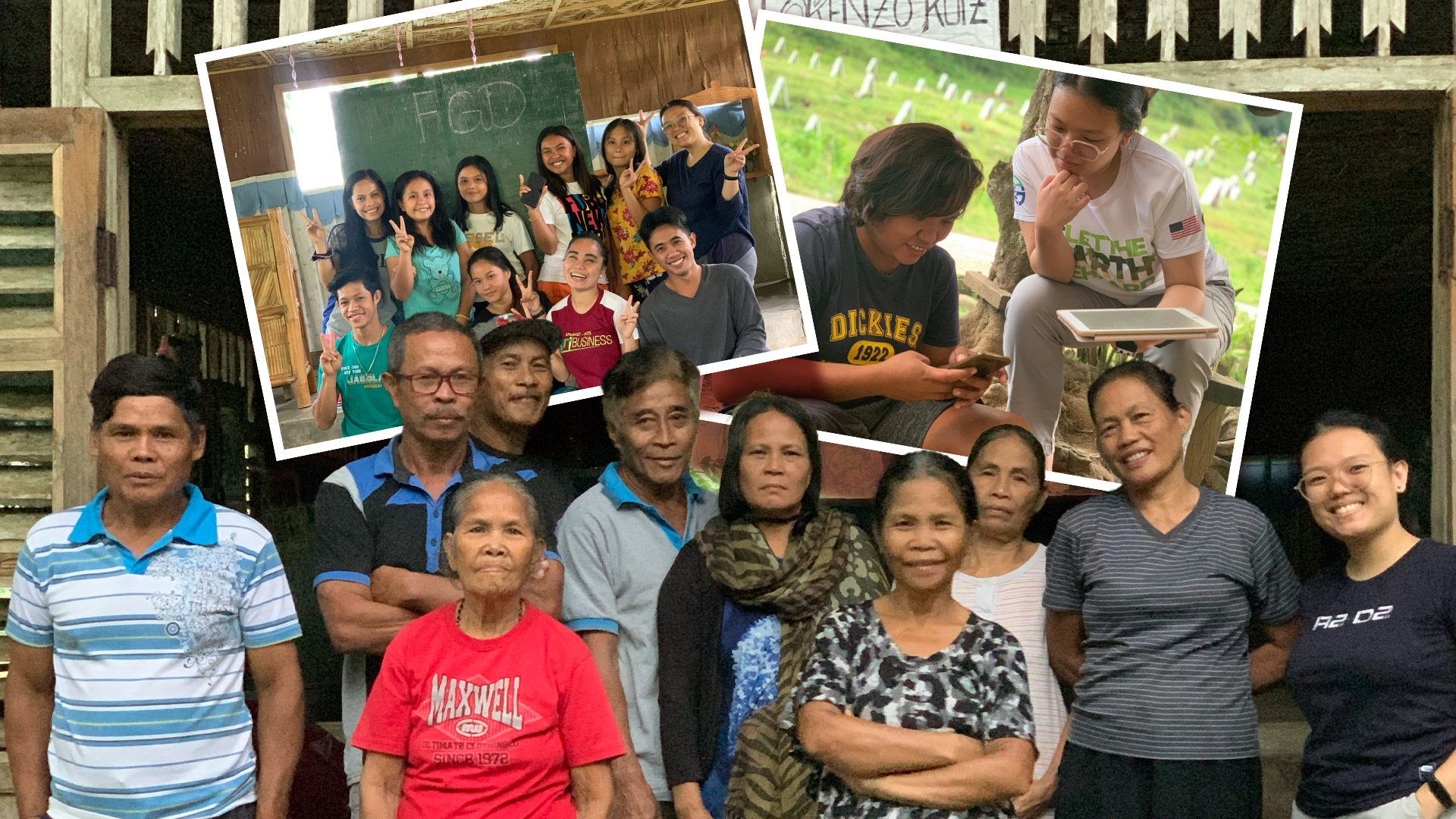
In April 2023, Ateneo de Davao University (AdDU) anthropology student Gwyneth Marie Vasquez was announced as the year’s class valedictorian and the recipient of the university’s Jesuit Mission award.
Vasquez received several well-wishes upon the announcement, but what struck her was the message of her friend Weweng. Weweng is part of the Tagakolu people residing in the hinterlands of Malita, Davao Occidental, whom Vasquez lived with for two months as part of the field work for her thesis.
“Super maka inspire kaayu ka, Te. Unta puhon ma parehas ku nimu bahalag di ma valedictorian basta ma pareha lang ku nimo maka human,” Weweng’s message read.
(You’re very inspiring, sister. I hope I become like you; even if I don’t become valedictorian, but at least I also finish school like you.)
Vasquez replied, “Nothing is impossible, Weng! Paningkamot lang og focus lang gyud sa imong gusto maabot. Naa rako diri naga suporta sa imo (Just work hard and really focus on what you want to reach. I’m just here to support you).”
But something about her reply made her pause.
“A few minutes after I sent her that message, I had to reflect and then that was when I realized, what I said was problematic. Or at least there’s something that makes me uncomfortable with what I told her,” Vasquez shared to Rappler.
What followed was a valedictory speech that would allow Vasquez to put words into her discomfort.
Her speech, made during the university’s commencement rites in May, was posted by the Department of Anthropology on its social media pages. It has now gathered more than two million views.
Journey to Malita
Vasquez’s valedictory speech was months in the making.
When Vasquez conducted her undergraduate thesis in anthropology, she coordinated with Matet Gonzalo, a colleague from AdDU’s anthropology department who’s a Tagakolu school coordinator in Malita.
The town is one of the beneficiaries of the ACCESS Mindanao program, launched by the AdDU in 2020 “to address the problem of online connectivity, democratize access to the Internet, and improve the quality of life for people in Mindanao.”
“One of the things that I wanted to look at with my thesis was how internet connectivity impacts or transforms communities that have not had access to the internet or even cellphone signals in the past,” Vasquez said in a mix of English and Filipino.
“I found out in my research that it’s not enough to provide physical access to ICTs (information communication technologies), like the internet or cellphones or whatever. But you also need to equip people with the skills to use them,” she shared. “Without skills to adequately use ICTs, they can’t really benefit from them. Maybe it can even do more harm.”
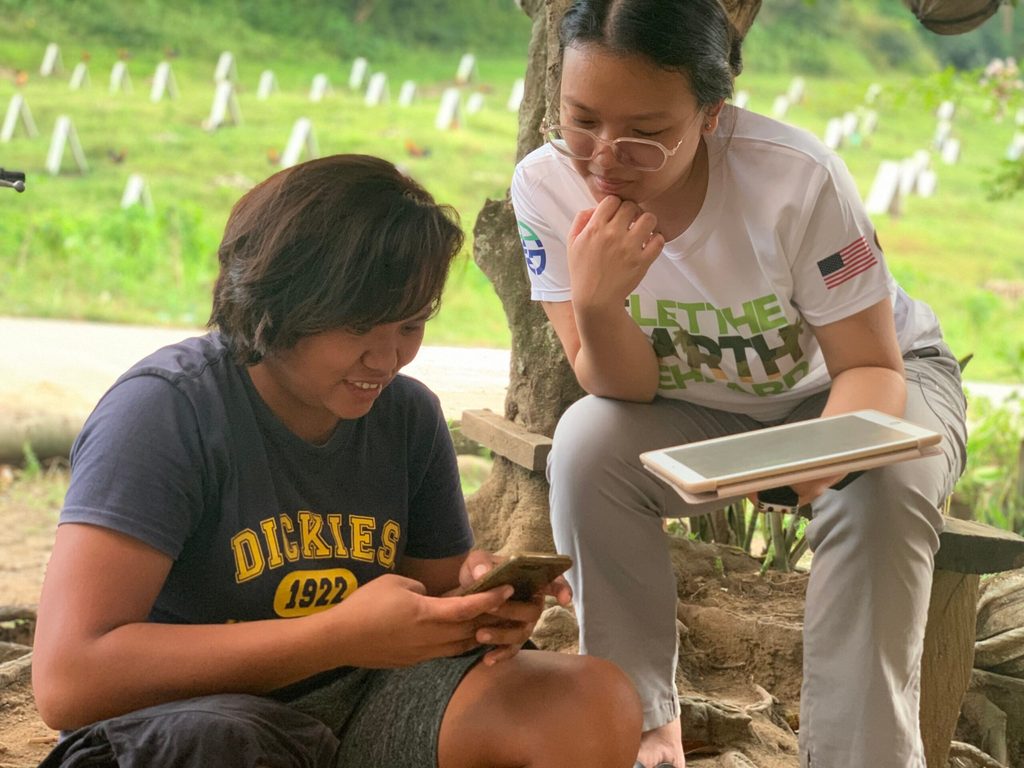
But more than her findings, Vasquez also learned a lot from living with the town’s Tagakolu community. Much of her time in Malita, she said, was spent with kids in internet shops and with students crossing the river going to school.
“I think these moments were actually more meaningful and I learned a lot more just by interacting with them…and journeying with them compared to all the structured interviews that I did,” she shared.
“Because it was through experiencing their lives with them that I actually got to understand their struggles and…the complexities of their lives, and also how human everything was for them, even though there were a lot of challenges along the way.”
Meeting the Tagakolu
The Tagakolu is one of the indigenous peoples in Mindanao, situated in Sarangani, Davao del Sur, and Davao Occidental. Tagakolu refers to the people that live upstream, in the forests where the waters of rivers flow from.
Like many indigenous peoples in the Philippines, the Tagakolu also suffer from the loss of their ancestral lands.
According to the Malita Tagakaulo Mission, an initiative of the Missionaries of Jesus who have worked with the Tagakolu community since 1988, the issue stems from the Spanish and American colonial regimes, who claimed ownership of the lands of Tagakolu without the latter’s knowledge.
Even after the country gained independence, the Tagakolu continued to lose their ancestral domain through apparent land grabbing by settlers in the lowlands. [READ: Higaonons battle for ancestral land in Misamis Oriental for years]
“Society and its institutions have been designed or organized to oppress or to lead to the exploitation and the oppression of indigenous peoples,” Vasquez said.
“The Bisaya settlers tend to be the ones who are more affluent, more educated. And then the Lumad, the Tagakolu tend to be the ones who are poorer, who can’t send their children to school, who haven’t gone to school themselves,” she pointed out.

Gonzalo, in a separate interview, also brought up the lack of access to education for members of the community. She stated that the young Tagakolu, mostly girls, choose to get married and build families instead because it’s what’s practical.
“Sometimes, life’s just hard. They look to the future and don’t see anything ahead of them. Their parents can’t afford to send them to school, which is in the town proper or in the city. Children in these families become aware of their situation, and many of them lose the determination to study or to find a job to sustain their education,” she said in Bisaya.
Gonzalo also brought up concerns about poor infrastructure in their community.
“In the mid-90’s, when I was still in high school, we had to cross a stream with no bridge just to get to school. But sometimes flash floods happen, to the point where the students suffer. Yet they have to go to school every weekday,” she shared.
“And every year, from the mid-90’s until today, I keep hearing that there’s finally a budget [to address the issue]. But nothing happens. So I’ve grown pessimistic. You can see that the services in our area are quite questionable.”
‘Structural inequality’
It’s this “structural inequality,” as Vasquez described it, that made her come to terms with the disparity between her way of life and that of the community she lived with.
“It’s not enough to just go there and live with people or try to understand where they’re coming from…. It’s also an internal journey of understanding where you’re coming from and even problematizing the privilege that you possess,” she said.
“That discomfort that I was talking about in the speech was not just something that I felt and realized when I wrote the speech, or a few moments before I wrote the speech. But it was also a persistent feeling that I felt even when I was doing field work before. I just maybe did not really recognize it that much,” she added.
Gonzalo lamented how, despite a few positive developments in communities, not everyone gets to experience them.
“We’ve worked for so long with many people in society, and we’ve seen how only a few get to experience progress and development, while many remain to be less fortunate. Just from that, you get to question those who say, ‘Our place has been developed, there are now better roads,’ and all that. But have the lives of people improved, too? Have their livelihoods improved, too?”
When asked what society needs to do to address gaps in communities like the Tagakolu, Gonzalo admitted she feels defeated.
“I really believe that life’s unfair. Life’s hard. Opportunities are not evenly distributed. At some point, there’s a part of me that has accepted that.”
Addressing inequality

One thing society can at least do to address inequality, Gonzalo immediately pointed out, is to build collaborations among various sectors and create avenues for the less privileged.
She finished her education with the help of the Malita Tagakaulo Mission, which was also one of the institutions that supported Weweng in her studies until she graduated senior high school. Since 2011, Gonzalo has connected Tagakolu youth who want access to education to institutions that grant them the opportunity.
“I hope others will be challenged to think not just for themselves, especially people like me who have received help. We should pay it forward, so to speak. We let the help we received ripple forth so that everyone can experience a good life,” Gonzalo said.
In October 2022, Vasquez returned to Malita to hold a digital skills training for the young Tagakolu people, as part of implementing her findings in her thesis.
But also, it was a way for her to give back to the community that became her home, even just for a while.
Since her valedictory speech went viral, Vasquez has received several messages, even from strangers, offering to help send Weweng or other people from the Tagakolu community to school.
“Initially, she was hesitating whether to go to college or to work because her parents were telling her na, ‘Mag-asawa ka na lang kasi (just find someone to marry because) we can’t send you to school, we don’t have the means to do so,’” she shared.
“But because of all that feedback and all those reactions from random people, Weweng found the motivation to apply.”
Gonzalo saw Vasquez’s valedictory speech as a “good starting point.”
“I hope they find ways to collaborate and use their privilege to help the less privileged in their own context and community. They all don’t need to come to us in the Tagakolu community; for sure, there are other communities who are like us,” she addressed those that have watched and read Vasquez’s speech.
Vasquez also thanked the viewers and readers for recognizing the struggles and experiences of the Tagakolu community.
“I hope that problematizing our privilege…it doesn’t stop at just that…. But also I hope that eventually it would urge us to do something about it in the long run, in our own ways, that would eventually move towards eradicating this inequality that most of us have seen or experienced,” she urged.
“We feel like we can’t do anything about that, but actually, we can.” — Rappler.com
Add a comment
How does this make you feel?


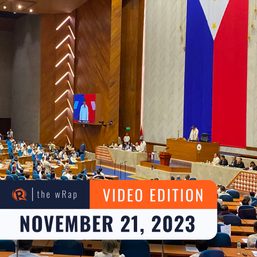
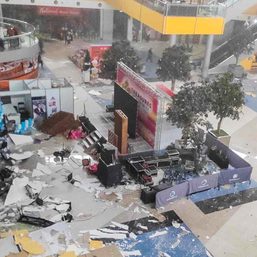
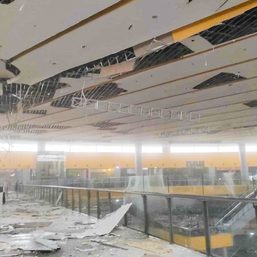

![[OPINYON] Tungkol sa naging viral na social media conjecture](https://www.rappler.com/tachyon/2024/07/thought-leaders-conjecture-07262024.jpg?resize=257%2C257&crop_strategy=attention)

![[EDITORIAL] Apat na taon na lang Ginoong Marcos, ‘di na puwede ang papetiks-petiks](https://www.rappler.com/tachyon/2024/07/animated-bongbong-marcos-2024-sona-day-carousel.jpg?resize=257%2C257&crop=280px%2C0px%2C720px%2C720px)

![[OPINION] What’s the right thing to do?](https://www.rappler.com/tachyon/2024/02/imho-whats-the-right-thing-to-do-02242024.jpg?resize=257%2C257&crop=259px%2C0px%2C720px%2C720px)
![[New School] Kagat ng realidad](https://www.rappler.com/tachyon/2024/02/new-school-kagat-ng-realidad-feb-14-2024.jpg?resize=257%2C257&crop=318px%2C0px%2C720px%2C720px)
![[New School] UP DiliMall, dili mall! Hindi nilalako ang edukasyon](https://www.rappler.com/tachyon/2023/11/ns-dilimall.jpg?resize=257%2C257&crop=307px%2C0px%2C720px%2C720px)
![[OPINION] A win for the breadwinner](https://www.rappler.com/tachyon/2023/08/iSpeak-win-breadwinner-August-1-2023.jpeg?resize=257%2C257&crop_strategy=attention)
There are no comments yet. Add your comment to start the conversation.